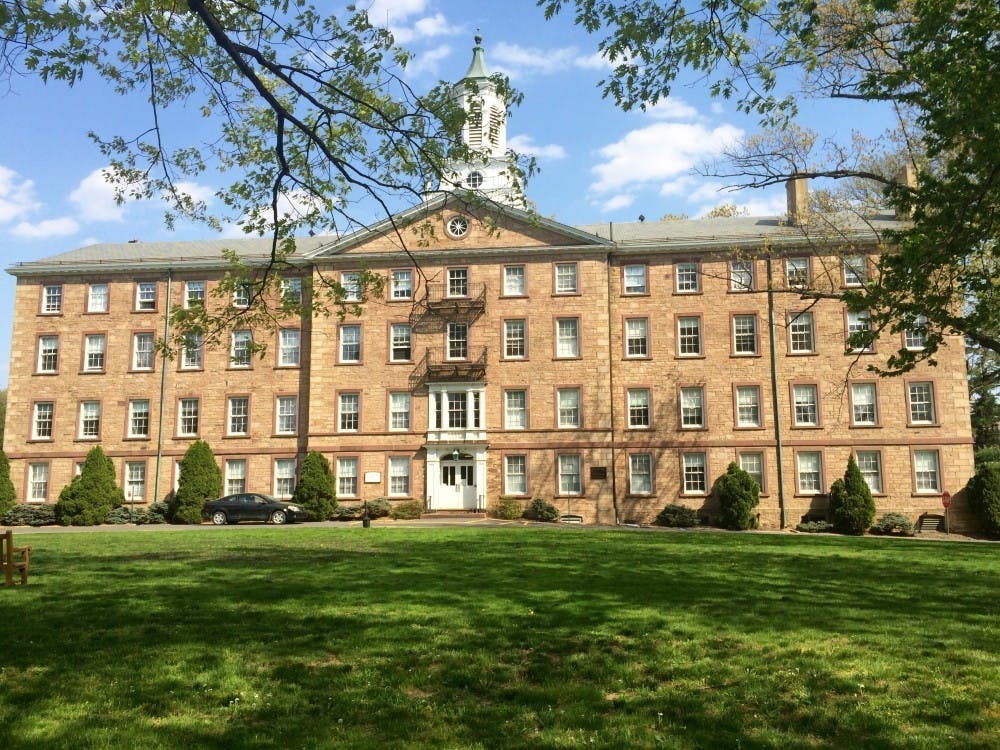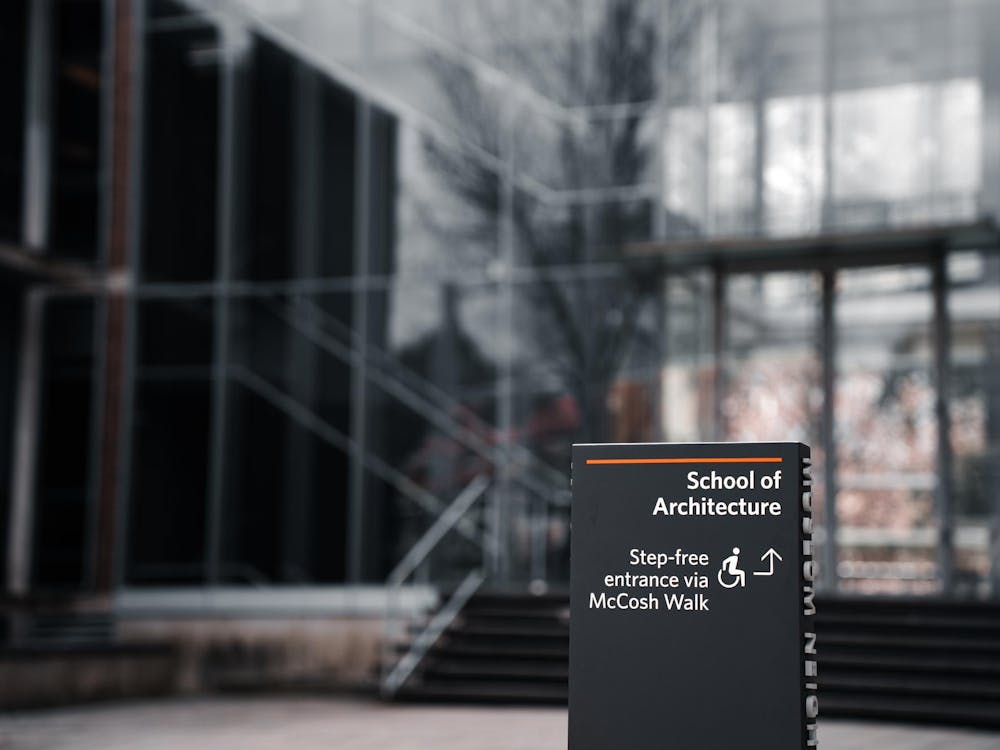Rev. Dr. Jonathan Lee Walton will begin his term as the first Black and the first Baptist President of the Princeton Theological Seminary (PTS) on Jan. 1. Walton is also an alum of the Seminary, earning a Ph.D. in 2006 and M.Div. in 2002.
The Seminary’s October announcement of his appointment comes nearly two years after the release of a historical audit report, which examined “the institution’s historic connections to slavery.” In the wake of the news, The Daily Princetonian spoke with University and Seminary community members about the significance of Walton’s appointment.
Walton did not respond to a request for comment.
Eddie S. Glaude Jr., Professor of African American Studies, said that Walton brings an important perspective to the Seminary.
“He understands, in a way that’s really transformative, the role and place of theological education in our current moment,” he said. “Of course, it's bound up with how we train ministers and the like, but it's also how we understand the moral and ethical underpinnings of our way of life.”
Walton previously served as the Dean of Wake Forest University’s School of Divinity. Prior to that role, he served as faculty at the Harvard Divinity School. He is the author of two books, and his scholarship primarily centers on the intersection of evangelical Christianity, mass media, and political culture.
Dashawn Robinson, a PTS student in his final year, said that Walton’s appointment reflects well on the institution.
“It truly showed that the school and institution has cared about some of the slavery audits, that it’s opening its mind to embracing the power and voice of people of color,” said Robinson, who served as the historian for the Association of Black Seminarians (ABS) last year.

President Craig Barnes, who has served as president of PTS since January 2013, delivered his final sermon on Monday, Dec. 5. After the sermon, students reflected on Barnes’ 10 years at the helm of the seminary, the seminary’s complex history, and Barnes’ efforts to increase diversity in the institution, as well as the institution’s complex history.
Rochelle Haggins, a student at the seminary, told the ‘Prince’ that she learned at Barnes’ retirement reception that the percentage of faculty of color increased nearly threefold from 10 percent to 33 percent under Barnes’ tenure.
Haggins also noted Barnes has made 19 faculty appointments and most of them were women and people of color.
The administrative actions that resulted in these changes followed the efforts of students, including those involved in ABS, who pushed for the University to grapple with its history of oppression head-on.

The audit report commissioned in 2016 and released in 2019 indicates that if one considers donors who profited from the slave trade, “as much as 30 to 40 percent of the seminary’s revenue before the Civil War could be connected to slavery.” In 2019, after the conclusion of a two-year audit that interrogated the seminary’s relationship to slavery, PTS set aside $28 million to reparations.
Robinson noted how the audit wrestled with “what role they’ve played in perpetuating the pedagogy of slavery and oppression” and said that PTS has tried “to make some changes throughout the campus to serve as repentance or symbols of repentance.”
On Jan. 25, PTS announced that it would disassociate its chapel from Samuel Miller, a slave owner and anti-abolitionist, after an ABS demonstration.
ABS has also centered its advocacy on less outwardly-visible diversity and inclusion efforts.
“We were more focused on some of the structural changes, whether that be representation in the materials that we’re reading, whether that be representation in some of the tenured professors,” said Robinson.
In addition to advocating for these structural changes, according to Robinson, members of ABS served on the committee to nominate the next President.
“They did make a push, for, if not a person of color, just someone who fully understood the elasticity of theology and scripture and how it’s inclusive of all people,” Robinson said.
“We were more concerned about the heart of the person, not necessarily the color, but the color is just a plus,” he added.
Students noted the excitement on campus that stems from having someone of Walton’s background, as a non-white, non-Presbyterian, alum, represented in the administration.
Walton earned his Ph.D. in 2006 and his M.Div. in 2002 from PTS and his bachelor's degree in political science from Morehouse College in 1996.
“From what I've heard people are excited. He’s an alum of here, so they’re excited to see that come full circle,” said Madison DeLuca, a PTS student.
Sydney Williams, another student member of ABS, also noted that Walton’s background as someone who attended a historically Black college, Morehouse College, bears significance to her. In addition, as someone who is non-Presbyterian herself, she’s excited to see the first Baptist President at the seminary.
Glaude commented on how Walton’s varied experience and unique perspective will bring nuance to his new role.
“He sees the role of theological education, its social function, its ethical function as much broader, as moving outside and beyond churches,” said Glaude. “What does it mean for us to be in a moment politically, and culturally, where we seem to be unmoored, where selfishness and greed overrun basic democratic values? What role might Princeton Theological Seminary play in helping us imagine our obligations to each other differently?”
While Walton’s appointment is historic, administrators and students say there is still work to be done.
“I'm definitely hoping there’s more invested in the research centers because I think that some of the most dynamic conversations are happening there about race and politics and a lot of very current things that are important to us as it intersects with theological concerns,” said Kaitlyn Dugan, the Director of the Center for Barth Studies at the Seminary.
Dugan also noted that given that many faculty members have retired, there’s an opportunity to fill chairs in the administration while keeping “concerns about representation in mind.”
“We still have a long way to go,” she added.
Kalena Blake is an Associate News Editor at the 'Prince.' Please direct all corrections to corrections[at]dailyprincetonian.com.








